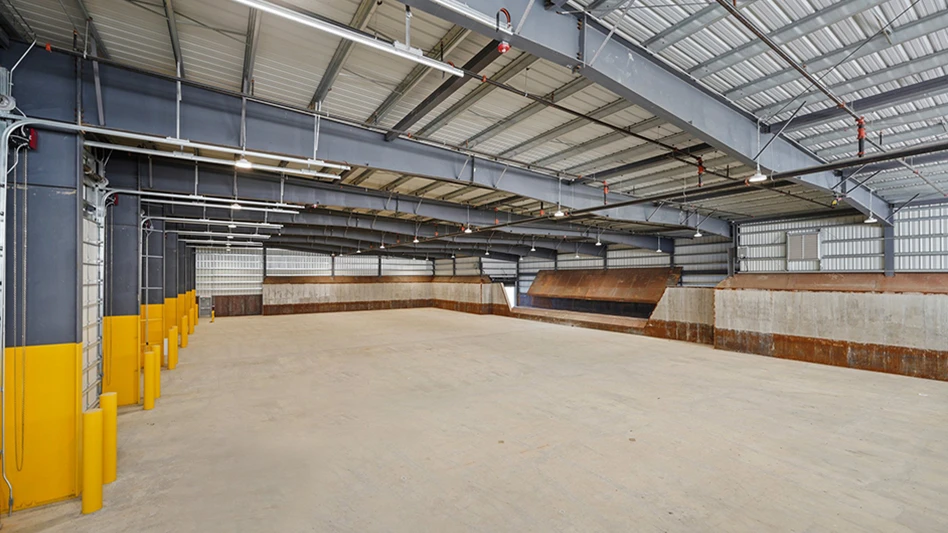
Photo from Waste Today photo archives
Synthica Energy, a Cincinnati-based developer of anaerobic digestion facilities that convert organic waste into renewable natural gas (RNG), has received an Air Quality Permit from the Georgia Department of Natural Resources for its new facility in Rome, Georgia.
The new facility will divert up to 300,000 tons of industrial organic waste each year when completed. The permit paves the way for Synthica to break ground at the site in the second quarter of 2024, with operations expected to begin in late 2025.
The Air Quality Permit was issued to establish enforceable emission limitations and covers the full operation of an anaerobic digestion facility consisting of two digesters, two tanks and a boiler. Synthica is currently working with manufacturers across Greater Atlanta on contracts to handle their organic waste feedstocks, including everything from food and beverage manufacturing byproducts and expired/damaged produce to spent yeast, expired beer and other depackaged beverage products.
“The approval of the air permit for Synthica Energy’s anaerobic digestion facility in Rome, Georgia, marks a significant milestone in our commitment to sustainable development,” says Missy Kendrick, president and CEO of the Rome Floyd County Development Authority. “The partnership with Synthica aligns with our mission to foster innovation and environmental responsibility. Our existing and future industries now have a resource to support their environmentally friendly corporate policies. Together, we are shaping a cleaner, more resilient future for Rome and Floyd County.
RELATED: Synthica Energy receives major investment from Goldman Sachs
“This project exemplifies our dedication to progressive industry practices that benefit both our community and the planet. We look forward to the positive impact this venture will bring to our region.”
The anaerobic digester being built in Rome will use technology that transforms waste into renewable energy. Synthica has already broken ground on its flagship location in Cincinnati, Ohio, and is developing similar facilities in a dozen other markets, including San Antonio, Houston, New Orleans and Louisville.
“Demand for a facility like this is significant across the Atlanta region,” says Grant Gibson, co-founder and chief development officer at Synthica Energy. “Despite being home to hundreds of manufacturers, there are currently no anaerobic digestion plants within 50 miles of downtown Atlanta. That means operating a food and beverage manufacturing plant in this region is more expensive than other markets because of the increased cost of hauling away and disposing of byproducts. Combine those cost savings with the environmental impact of anaerobic digestion and the new production of RNG, and this solution is a win for manufacturers, for the Rome community and … the environment.”
Get curated news on YOUR industry.
Enter your email to receive our newsletters.Latest from Waste Today
- ReMA board to consider changes to residential dual-, single-stream MRF specifications
- Miller Environmental Group Inc. appoints CEO
- DPI acquires Concept Plastics Co.
- Laurel Mountain Capital announces investment in 5280 Waste Solutions
- Cielo investor requests annual meeting
- WIH Resource Group celebrates 20th anniversary
- NWRA: NIOSH cuts a step in the wrong direction
- Valicor Environmental services acquires Affordable Waste Management






